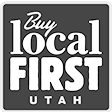After the Storm
2012
We’ve all seen pictures of the Frankenstorm, “Sandy” that hit the East coast two weeks ago. Disasters like that prompt a myriad of thoughts and discussions about “What would happen if disaster struck HERE? Am I prepared to be without electricity and water for a week? What if my entire home disappears into a crack in the earth during a tremor?” Homeowners are required to carry insurance on the behalf of lenders, to protect the lenders interest on their loan. When disaster strikes, a property owner will likely call their insurance agent immediately and make a claim. But what if you had let your insurance lapse or can’t get insurance on your property? Look for the folks riding in on proverbial white horses to save the day: FEMA!
The Federal Emergency Management Agency is a government agency paid for by your taxes, under the Department of Homeland Security. It was only created recently-in the 1970’s and is called in when a State declares a disaster area due to a man-made or act of God event that overwhelms the abilities of the citizens of that state or states. Before then the government responded to disasters like the great fires of Portsmouth, New Hampshire and New York City in the 1800’s by waiving taxes to merchants to help them recover from loss of property.
FEMA is not the Red Cross, but people in need often confuse the two and think that FEMA brings the food and blankets right after the storm leaves. FEMA helps individuals after disasters who do not have insurance or who have been hit by flooding. They send out inspectors to the area in question, evaluate your situation and make a decision about your case within 10 days of the visit. They may cut you a check immediately for temporary living expenses not covered by flood insurance, and if you’re just a renter, they may give you living expenses for up to 6 months. Landlords can’t get money for lost rents, though.
The agency can give you money up front for emergency purposes, and offers grants. You must use their grants for specific purposes, as in what repairs to make to your current home and the amount of rent assistance you’ll get while you do those repairs. Anyone affected by a huge disaster (like the storm surge and floods back East) can apply for help from FEMA and the State will encourage you to apply because they will get more money from FEMA for infrastructure repairs. FEMA can offer assistance in negotiations with your insurance company, too.
Basically FEMA is there for folks in extreme circumstances after disaster strikes, and especially for people who don’t have insurance. In reading over threads about how effective the agency is, one person wrote, “I wish I didn’t have my car insured-my neighbor got a huge check for his beater that hadn’t run for years.” What does your insurance cover? It’s good to know, whether you’re a property owner or tenant. You never really know until disaster strikes, but call your agent and ask a few basic questions:
- Am I covered for earthquake? For flood? Fire?
- Will you pay for my lodging until I can move home, and if so, how much and for how long?
- What repairs won’t you pay for?
Your insurance carrier can also advise you on additions to your current policy which might cover you better during a total property disaster.









